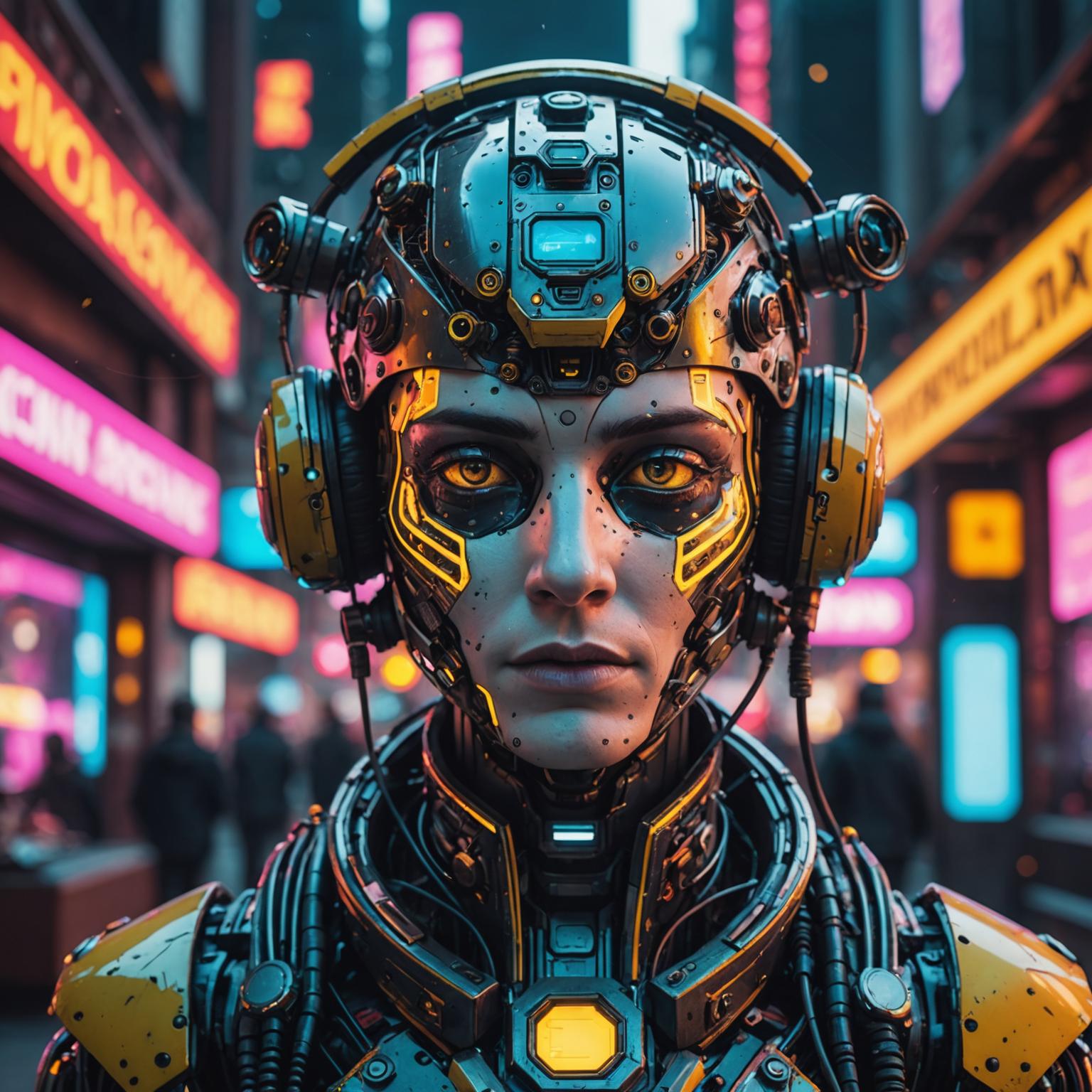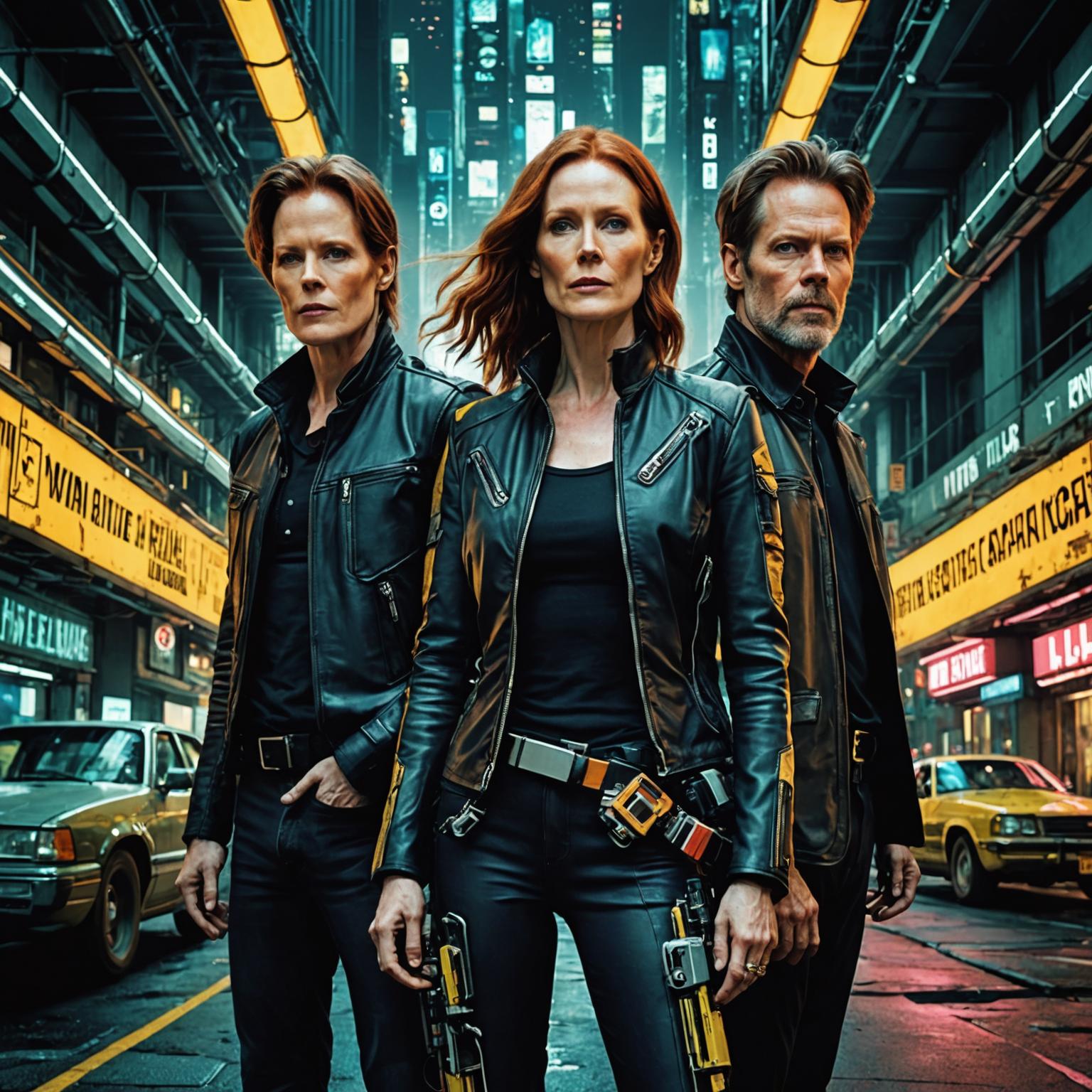Kevin Bacon, Julianne Moore, Thom Yorke, and 10K+ Creators Sign Warning Against AI Use of Their Work
In the increasingly digital landscape of the creative arts, the intersection of Artificial Intelligence and artistry has sparked significant debate. Recently, a coalition of renowned figures—actors Kevin Bacon and Julianne Moore, musician Thom Yorke, and over 10,000 creators—united to express their concerns about the use of AI technologies in the creative process. This movement raises critical questions about ownership, originality, and ethical use of artistic works within AI systems.
As AI continues to evolve, it is reshaping industries by analyzing vast amounts of data, automating tasks, and generating content. While this technology has the potential to democratize creativity and enhance productivity, it also poses challenges that demand careful consideration. Here, we will explore:
- The role of AI in content creation
- The concerns raised by creators about intellectual property
- The balance between innovation and artistic integrity
- Potential implications for various sectors, including entertainment, journalism, and education
Join us as we delve into this crucial conversation, unpacking what these prominent voices are warning against, and what it means for the future of creativity in an AI-driven world.

– Understanding the Call to Action: Why Creators are Concerned About AI
The collective concern among creators like Kevin Bacon, Julianne Moore, and Thom Yorke about the use of artificial intelligence in their work stems from a growing fear that their original contributions may be misappropriated or diluted by technology that doesn’t acknowledge their artistry. AI systems, particularly those trained to generate content, can inadvertently hijack the unique voices and styles of artists by consuming vast amounts of existing works to “learn” and replicate patterns. This raises urgent questions about copyright, ownership, and the value of creativity in an age where machines can fabricate art, music, and written content that may closely resemble the work of these creators.
Moreover, these concerns are compounded by the possibility that AI-generated content could saturate the market, making it increasingly difficult for original creators to make their voices heard. As creators fight to protect their intellectual property, key issues emerge, including:
- The necessity of clear guidelines around AI usage in creative industries
- The establishment of ethical standards for data sourcing
- Fostering an environment where human creativity is valued over machine-generated imitations
The conversations surrounding these topics highlight a critical crossroads between innovation and preservation, where the balance must be struck to ensure that technology enhances rather than undermines human creativity.
– The Implications of AI on Creativity and Intellectual Property Rights
As artificial intelligence technologies become increasingly proficient at generating original content—be it music, writing, or visual art—the boundary between inspiration and infringement raises significant concerns among creators. With AI systems trained on vast datasets that often include copyrighted material, the question of who owns the rights to AI-generated work becomes complex. Artists argue that their intellectual property is being exploited without credit or compensation, leading to a pervasive fear that their unique styles and voices may be assimilated into AI systems without consent. This situation has prompted calls for clearer regulations around AI’s use of creative works, highlighting the urgent need for conversations about fair compensation and recognition.
The implications of this shift extend beyond individual artists, affecting the entire landscape of creative industries. Here are several critical points regarding the intersection of AI and intellectual property rights:
- Copyright Ambiguities: The status of AI-created work under current copyright laws remains uncertain, as traditional legislation does not account for non-human creators.
- Incentivizing Creativity: There is a fear that reliance on AI could stifle human creativity if artists feel pressured to compete against machine-generated content.
- Ethical Considerations: Developers must consider the ethical sourcing of training data and ensure creators’ rights are respected when building AI tools.
- Future Regulations: As a response, calls for new laws governing AI use in content creation continue to grow, aiming to protect both artists and the integrity of creative expression.
These developments demand significant discussions between creators, technologists, and lawmakers to foster an ecosystem where innovation and respect for original work coexist harmoniously.
– Navigating AI Use Responsibly: Guidelines for Creators and Developers
As creators and developers embrace the transformative potential of AI, it becomes crucial to navigate its complexities with responsibility and awareness. The recent warnings from prominent figures, including Kevin Bacon and Julianne Moore, emphasize the need for ethical considerations in using AI technologies that leverage creative work. This includes understanding the implications of copyright infringement and respecting the original intentions of artists. When engaging with AI, creators should adhere to best practices that promote fairness and equity. Key guidelines include:
- Transparency: Clearly disclose when AI technologies have been used to generate or modify creative content.
- Consent: Ensure that the work of others is used only with explicit permission, respecting artists’ rights.
- Accountability: Take responsibility for the outcomes of AI-generated content and its effects on audiences and communities.
Moreover, establishing a framework for responsible AI use necessitates collaborative efforts within the industry. Creators and developers can support ethical AI by engaging in open discussions and forming coalitions that advocate for fair use guidelines. In light of the recent public statement by over 10,000 creators, it becomes evident that collective action is vital for steering the narrative surrounding AI’s role in creative industries. By formalizing ethical standards in AI development and implementation, stakeholders can foster an environment that not only respects individual artistry but also encourages innovation in a way that uplifts all voices involved.
| Guideline | Description |
|---|---|
| Transparency | Disclose AI usage in content creation. |
| Consent | Obtain permission for using someone else’s work. |
| Accountability | Be responsible for AI-generated content outcomes. |
– The Future of AI and Creative Work: Opportunities and Ethical Considerations
As AI technology continues to advance, it opens up exciting doors for creativity, allowing artists, musicians, and writers to explore new realms of expression and collaboration. However, the increased capability of AI to generate content raises critical concerns about the ownership and authenticity of creative works. Major figures in the arts, including Kevin Bacon, Julianne Moore, and Thom Yorke, along with over 10,000 creators, have voiced their apprehension about AI’s encroachment on their intellectual property. They’ve warned that while AI can enhance the creative process, it also risks diluting the unique human touch inherent in artistic expression. The tension between leveraging AI for creative collaboration and safeguarding the integrity of individual artists poses profoundly ethical questions that society must address.
AI’s potential in creative spheres extends beyond mere content generation, ushering in a new era of collaborative innovation where technology complements human creativity. Nonetheless, the ethical implications must be navigated carefully. Here are some key considerations that the industry faces:
- Copyright Issues: Determining who owns AI-generated work and whether it infringes on existing copyrights.
- Authenticity: Weighing the value of human creativity against algorithmically generated content.
- Job Displacement: Assessing the impact of AI on traditional roles in the creative fields.
- Bias and Representation: Ensuring AI systems are trained on diverse datasets to prevent perpetuating stereotypes.
| Opportunity | Ethical Consideration |
|---|---|
| AI as a creative partner | Maintaining authorship recognition |
| Enhanced productivity for creators | Potential job loss in creative sectors |
| New forms of interactive media | Ensuring equitable access to technology |
| Personalization in art and music | Protecting artistic intent and vision |
In Conclusion
In a world where AI is becoming increasingly integrated into our daily lives, the recent warning against the use of their work by Kevin Bacon, Julianne Moore, Thom Yorke, and over 10,000 creators highlights the importance of protecting artistic integrity in the digital age. As we navigate the complex landscape of AI and its implications, it is crucial to consider the ethical and legal ramifications of utilizing advanced technologies in creative fields.
By delving into the intricacies of AI and exploring its potential applications across various industries, we can gain a deeper understanding of how these technologies are shaping the future. From healthcare to finance to education, AI is revolutionizing the way we approach problem-solving, decision-making, and innovation. As we reflect on the implications of AI in our society, we are challenged to think critically about how we can harness its power for the greater good while respecting the rights and interests of creators.
As we continue to unravel the mysteries of AI and its impact on our world, let us embrace the endless possibilities it presents while remaining vigilant in safeguarding the creative contributions of individuals. Through education, awareness, and thoughtful consideration, we can navigate the ever-evolving landscape of AI with integrity and purpose. Let this warning serve as a reminder of the importance of protecting our art, our ideas, and our identities in the digital age.
